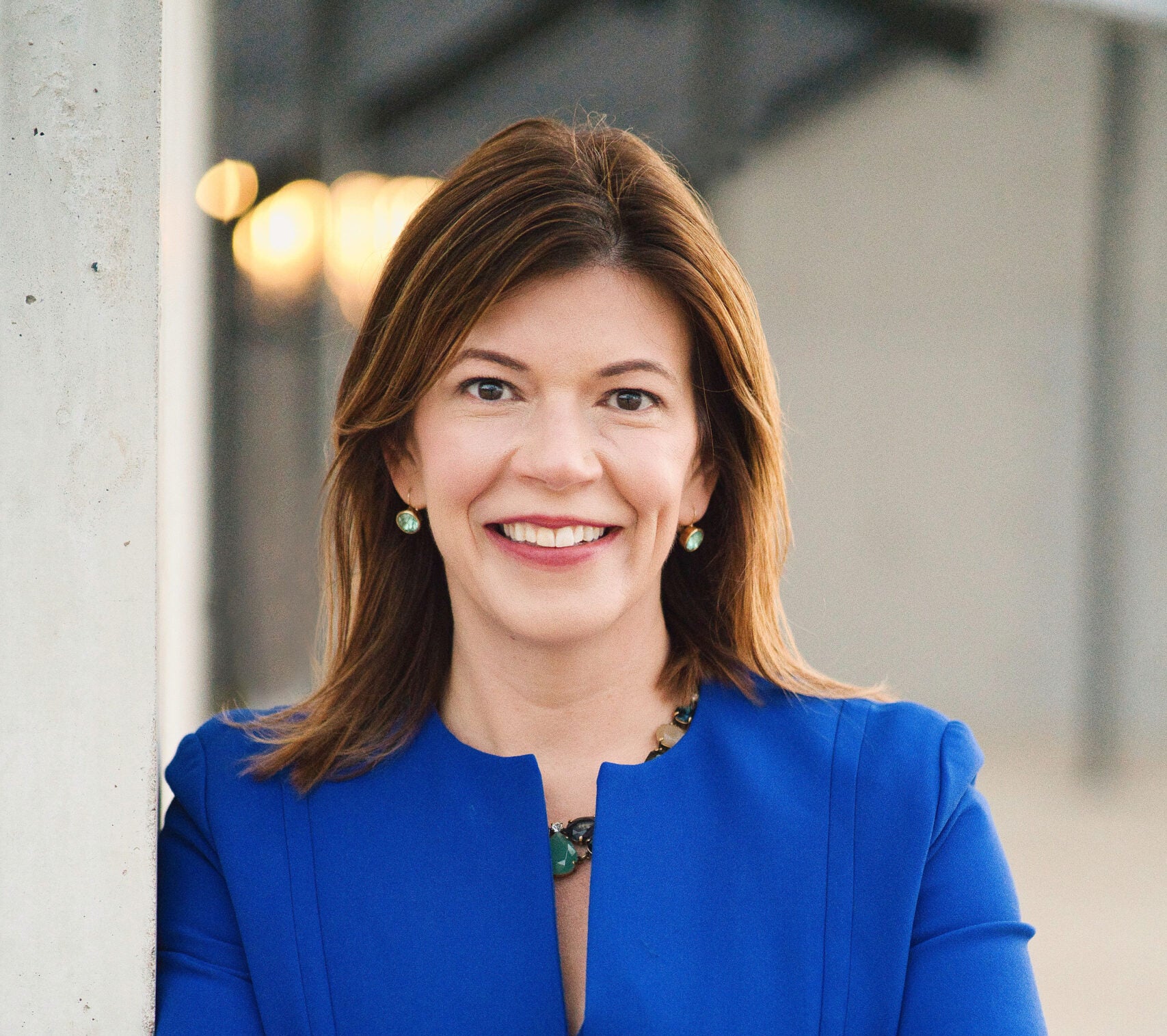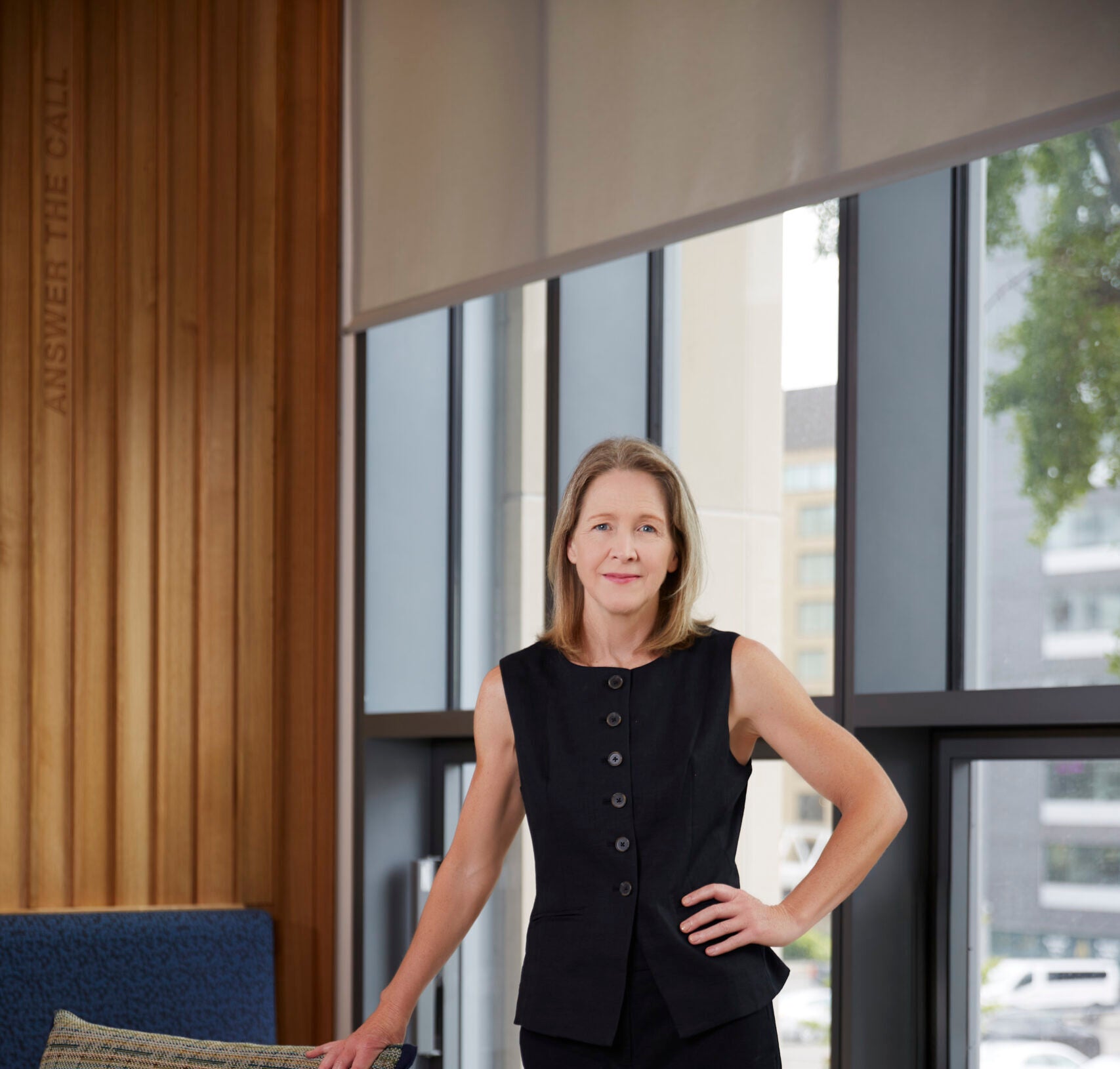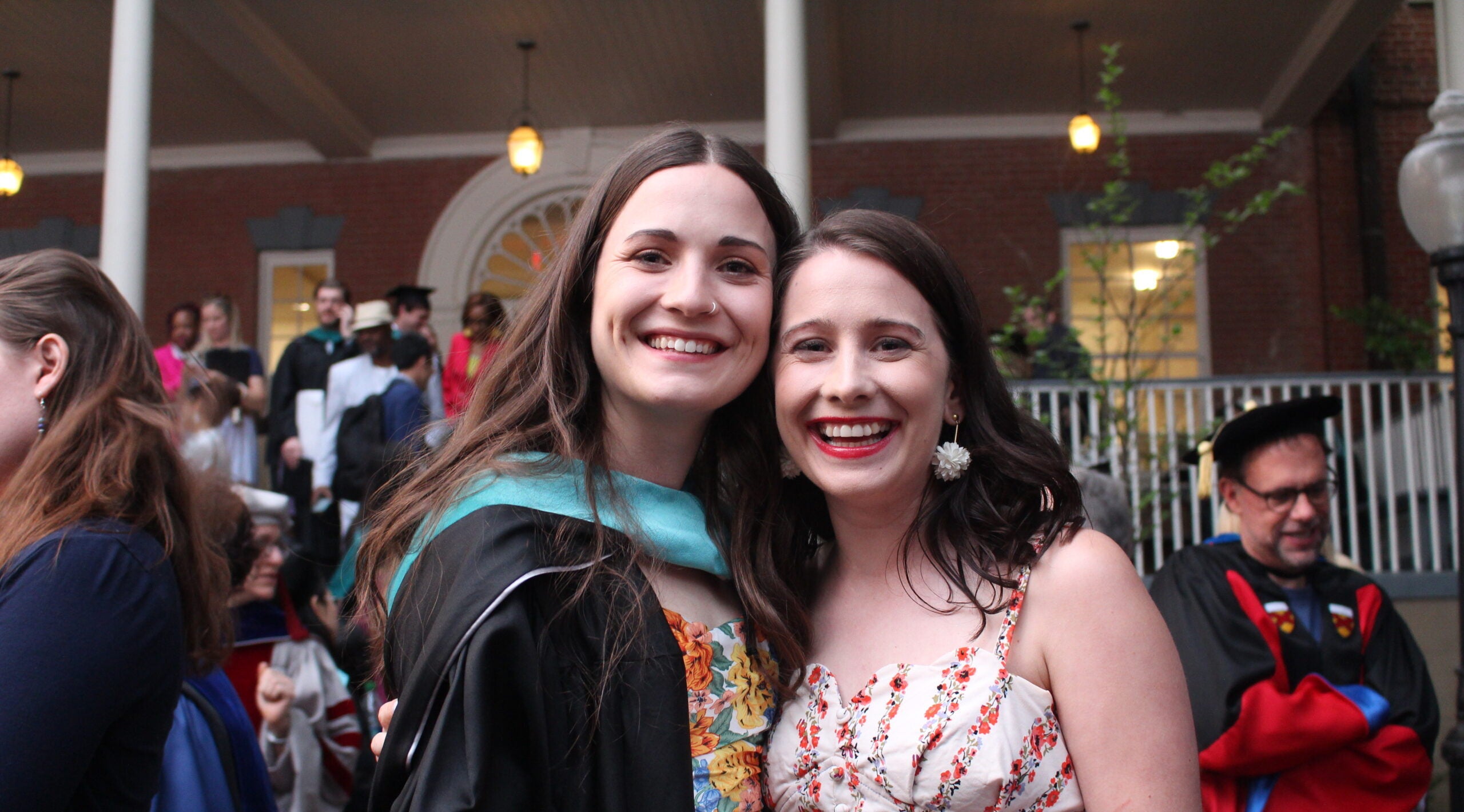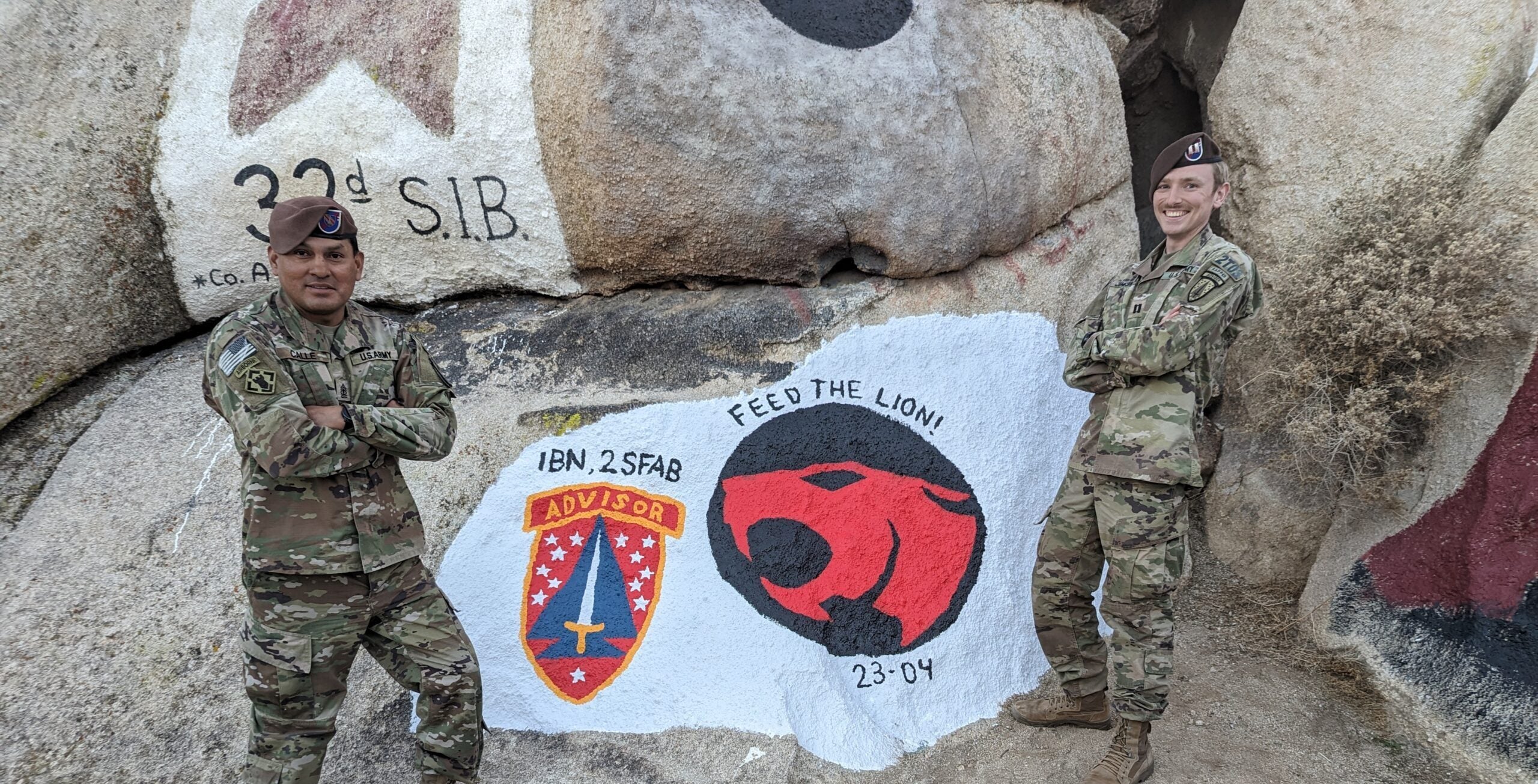Right now is really a time where we are rethinking what the role of government is in everyone’s daily lives, what the role of policy is and what the power of policy is.
Passionate Researchers: McCourt School welcomes new faculty driving research in criminal justice, education and state politics
This story was written by Cady Stanton as part of the McCourt School’s annual alumni magazine, Policy Perspectives.
New McCourt faculty bring research background in policing, education and state politics.

Amanda Lu joins the McCourt School as an assistant teaching professor and faculty director for academic programs in policy practice. After receiving her bachelor’s degree in government from Harvard College, Lu moved to New Orleans to teach at a local high school soon after the state overhauled the city’s public school district and created an all-charter system. She saw an insightful policy case study in the reinvention of the school system and has spent much of her career researching how the change reshaped the city’s institutions, people’s relationships with them and democracy.
Lu focused her post-doctoral studies on learning recovery after the COVID-19 pandemic, including ways to get students individualized academic support through high-impact tutoring. In her faculty director role, she plans to focus on ensuring that students can prioritize practical experience and leverage their McCourt School education to flow cohesively into their career after graduation, with an emphasis on faculty mentorship and peer-to-peer thought partnerships.
“At my core, I’m a teacher, especially because I’ve been teaching young people since I was 21,” Lu Said. “Right now is really a time where we are rethinking what the role of government is in everyone’s daily lives, what the role of policy and strong policy is and what the power of policy is.” Lu received her M.A. in education, MPP, M.A. in sociology and Ph.D. in educational policy and the sociology of education from Stanford University.
Amanda sat down with us to share her answers for 5 Questions, an annual video series that introduces new faculty to the McCourt community.

“Gerrymandering is possibly the most important long-term threat for democracy.”
A political scientist researching American democracy at the state and local level, Chris Warshaw joins the McCourt School as a full professor.
Warshaw’s research has explored the links between public opinion, elections and political outcomes in city and state governments and examined how the organization of political systems, such as term limits or direct democracy, influence political representation. Warshaw has also collaborated on two election information websites: Planscore.org, which helps policymakers and advocates score and assess the fairness of new district maps, and TrueViews.org, which displays estimates of public opinion based on geography.
Warshaw plans to focus his teaching philosophy at the McCourt School on instructing students to be critical thinkers and to analyze, interpret and concisely summarize information as they conduct research. He also hopes to eventually teach courses related to redistricting and its impact on society as a structural issue. “I think it continues to be the case that gerrymandering is possibly the most important long-term threat for democracy,” Warshaw said.
Warshaw as a Ph.D. in political science from Stanford University and received a B.A. in economics and political science from Williams College. He previously taught at George Washington University and the Massachusetts Institute of Technology.
Chris sat down with us to share his answers for 5 Questions, an annual video series that introduces new faculty to the McCourt community.

“Solid quantitative methods and causal inference hopefully enable us to produce better criminal justice policy.”
Roman Gabriel Rivera fell in love with the research process documenting policy misconduct in Chicago for a journalistic nonprofit in the city while earning his MPP. He has expanded that passion through quantitative analyses as a labor economist focused on the economics of policing and crime, publishing papers on political diversity in U.S. policy agencies and the role of officer race and gender in interactions with civilians.
Joining the McCourt School as an assistant professor, Rivera says he was drawn to Washington, DC, as a hub for policymaking. He became involved with McCourt’s Massive Data Institute (MDI) because of its utilization of large amounts of data to solve social issues and the school’s partnerships with Georgetown Law School. Rivera hopes to focus his teaching on crime and justice policy, program evaluation and introductory econometrics.
“Solid quantitative methods and causal inference hopefully enable us to produce better criminal justice policy that both reduces crime and reduces the social costs of the criminal justice system,” Rivera said. “There’s no better way to do that than teaching the people who make it happen.”
Rivera received his Ph.D. in economics from Columbia University and his MPP and B.A. in economics from the University of Chicago.
Roman sat down with us to share his answers for 5 Questions, an annual video series that introduces new faculty to the McCourt community.
The interview below is adapted from Kimberly Iverson’s article From Data to Dignity in Policy Perspectives, 2025.

“My advice to students? Rigorously pursue truth, do your homework and develop resilience.”
Meet Dr. Diane Whitmore Schanzenbach, the new McCourt Chair, whose career is dedicated to enhancing opportunities for low-income families through evidence-based solutions. Her tenure is made possible by a 2013 investment of $100 million for McCourt founding donor Frank H. McCourt Jr. (C’75). This gift continues to support an expansion of the school’s core faculty, an increase in interdisciplinary appointments and stronger cross-campus collaborations.
Q: How do you envision McCourt leveraging its expertise, including your own, to make a tangible difference for families?
A: I’m thrilled by McCourt’s community — scholars and students dedicated to using diverse expertise to improve public policy. My vision is to harness this collective passion and our strong focus on anti-poverty and education to make a tangible difference.
Q: Your career has focused on how research can forge better opportunities. Is there a moment that brought home the power of evidence to make a tangible policy difference?
A: A defining moment came while leading the Hamilton Project at Brookings. I was new to Washington, DC, attending a bipartisan meeting on evidence-based policy. The organizer, John Bridgeland, former domestic policy council director for President George W. Bush, cited a statistic: SNAP access for children significantly increases their likelihood of high school graduation. He then shared that a policymaker approached him afterward, saying that specific evidence had changed their mind about the program. As he spoke, I realized he was citing my research. I nearly fainted!
It was incredible. To have your work published in a top academic journal not only reach policymakers but actually shift their perspective and make a real policy difference — that’s truly the dream. It was one of my proudest moments and a powerful affirmation that this challenging path is indeed the right one, showing how vital it is to connect solid evidence with whose in a position to create change.
Q: What are the challenges of translating complex research for decision-makers? What advice do you have for McCourt students aspiring to bridge this gap?
A: The challenge is cutting through misinformation. My advice to students? Rigorously pursue truth, do your homework and develop resilience. Your job is to share evidence clearly and persistently, even when it’s tough.
Diane sat down with us to share her answers for 5 Questions, an annual video series that introduces new faculty to the McCourt community.
More from Policy Perspectives

General News, Policy Perspectives
Right place, right time: Getting to know Dean Carole Roan Gresenz
Carole Roan Gresenz, The McCourt School’s new dean, talks about her earliest lessons, her career in research and the things that keep her grounded.
September 4, 2025

Alumni, Discovery & Impact, Policy Perspectives
McCourt School alumna charges ahead on EV adoption incentives for Washington State
Emma Wyma (MPP’23) As a clean transportation policy engagement specialist for the Washington State Department of Commerce, Emma Wyma (MPP’23) is the point person for the state’s Electric…
March 10, 2025
Discovery & Impact, Policy Perspectives
Newmark Scholar Ryan Johnson transitions from the Army to data-driven public service
Ryan Johnson (MPP/MBA’27) Each year, the Craig Newmark Veterans Scholarship Fund offers tuition assistance to as many as nine graduate students. The recipients, who are exclusively active-duty…
November 11, 2024
